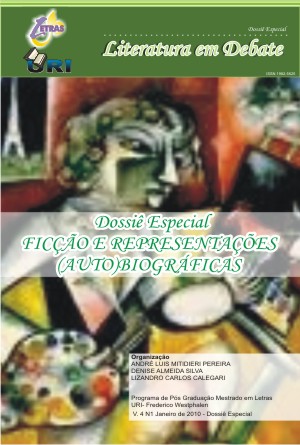MEMÓRIA E ESQUECIMENTO NO SEGUNDO VOLUME DE MAUS, DE ART SPIEGELMAN: AS LEMBRANÇAS DE MAUCHWITZ
Keywords:
Literatura de testemunho. Narrativa Gráfica. Crítica Literária.Abstract
Escrito e desenhado pelo cartunista norte-americano Art Spiegelman, Maus
apresenta, em sua narrativa, um diálogo entre o autor e seu pai, Vladek Spiegelman, sobrevivente da perseguição nazista na segunda guerra mundial. A partir desse relato, o narrador personagem passa a aprofundar sua percepção do pai, de sua mãe e de outros de seus familiares, muitos deles mortos em campos de concentração. De forma objetiva e impactante,
a arte e o texto de Spiegelman colocam o leitor não apenas dentro das lembranças de um sobrevivente da perseguição nazista como também como observador dos conflitos entre um pai e um filho em suas diferenças existenciais e sociais. Este artigo tem por objetivo refletir sobre a recriação da memória autobiográfica e do esquecimento de fatos traumáticos na caracterização do narrador do romance gráfico.
MEMORY AND FORGETTING IN THE SECOND VOLUME OF ART SPIEGELMAN’S MAUS: THE REMEMBERING OF MAUCHWITZ
Wrote and illustrated by the North-American cartoonist Art Spiegelman, Maus presents a dialogue between the author and his father, Vladeck Spiegelman, about the period that he lives the Nazis persecution in Second World War. Beginning with this tale, Art goes deep in his perceptions about his father, his mother and about the other families, the majority
of them, dead in the concentration camps. In an objective and impactant way, the Spiegelman's art and his text put the reader not only in the memories of a survivor of the Nazis persecution but also as an observer of the conflicts of a father and a son in their differences. This paper aims at thinking about the recreation of this repressor scenery and the real experiences of the graphic novel narrator.
Published
How to Cite
Issue
Section
License

O trabalho Revista Literatura em Debate de Revista Literatura em Debate foi licenciado com uma Licença Creative Commons - Atribuição 3.0 Não Adaptada.
A submissão de artigos, resenhas e trabalhos de escrita criativa significa que o autor(es) está(ão) cedendo gratuitamente à revista direitos autorais para publicação dos textos e concordando com as normas de submissão apresentadas pelo periódico.
Em caso de republicação, solicita-se apenas referendar o ano e volume de nossa revista onde ocorreu a publicação inicial.

